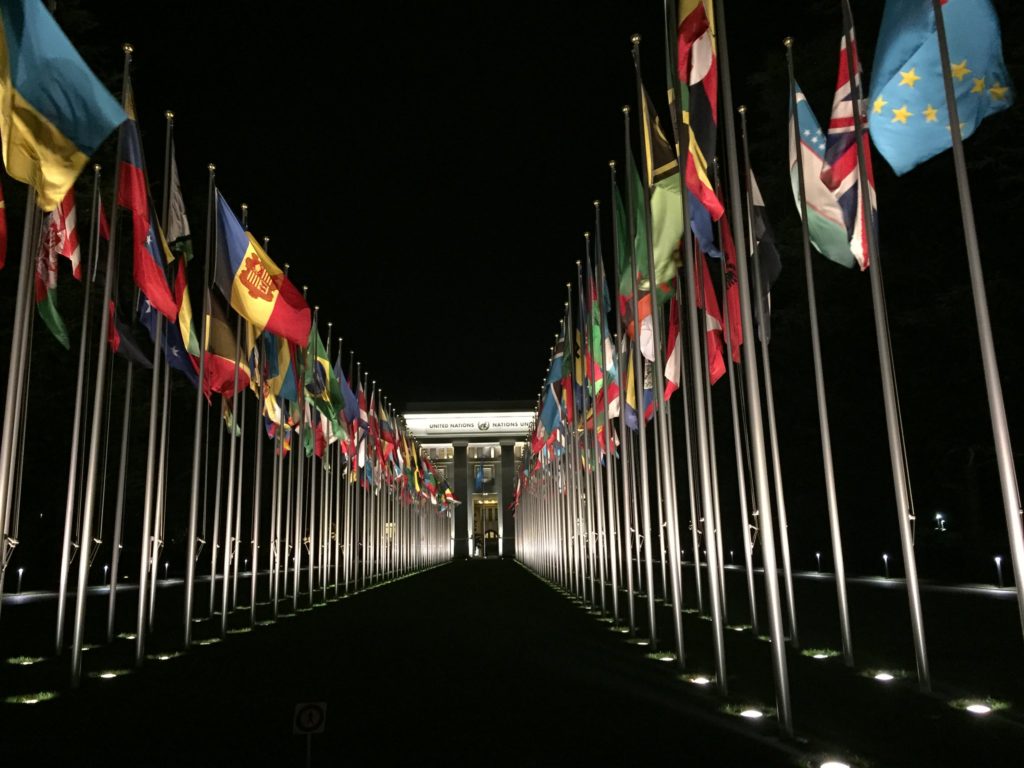
Fragile diplomatic talks limp forward

Reflecting the fragility of multilateralism today, states have agreed that the diplomatic talks on lethal autonomous weapons systems—killer robots—will limp forward next year, with even less time dedicated. The weak outcome at the Convention on Conventional Weapons (CCW) annual meeting underscores the critical need for bold political leadership to prevent dehumanizing the use of force.
In the view of the Campaign to Stop Killer Robots, public pressure on governments will be essential to prevent the development of weapons systems that, once activated, would select and attack targets without further human intervention
All states must heed the call of the UN Secretary-General and prohibit these weapons, which he has deemed “politically unacceptable and morally repugnant.” The security of the world and future of humanity hinges on achieving this critical objective.
None of the 88 states participating in the CCW meeting objected to continuing the formal discussions on lethal autonomous weapons systems. However, states take their CCW decisions by consensus, which means one state can block agreement sought by the rest.
This meant that Russia alone was able to successfully reduce the amount of time states will meet on killer robots in 2019 from just 10 days to a pitiful seven. This is less than the bare minimum of time necessary for the CCW to remain credible when it comes to tackling the killer robots challenge.
Russia also managed to scuttle further consideration on other pressing humanitarian arms concerns, such as incendiary weapons.
Public concerns are mounting at the prospect of weapons systems that, once activated, would select and attack targets without further human intervention. For the Campaign to Stop Killer Robots, the fact the CCW talks on killer robots will proceed next year is no guarantee of a meaningful outcome.
Meanwhile a critical mass of states keen to move forward is building. Most of the CCW states have expressed their strong desire to move to negotiate a new treaty, including 28 states seeking to prohibit fully autonomous weapons. El Salvador and Morocco added their names to the ban list last week.
It seems ever more possible that concerned states will now begin to consider other avenues to create a new international treaty to prohibit fully autonomous weapons. Past CCW failures to tackle human suffering caused by antipersonnel landmines and cluster munitions resulted in life-saving ban treaties. The inability of nuclear weapons states to disarm led states to create the 2017 Treaty on the Prohibition of Nuclear Weapons via the UN General Assembly.
Those treaties were all the result of genuine partnerships between like-minded states, UN agencies, the International Committee of the Red Cross (ICRC) and dedicated coalitions of non-governmental organizations. The Campaign to Stop Killer Robots is frustrated at the slow and unambitious CCW talks and stands ready to work in a similar fashion to secure a ban treaty through other means.
Mr. Ljupco Jivan Gjorgjinski of the Former Yugoslav Republic of Macedonia will chair the CCW’s deliberations on lethal autonomous weapons next year, which meet on 25-29 March and on 20-21 August. The CCW’s annual meeting will be held on 13-15 November.
For more information, see:
- Statements from the CCW meeting collected by WILPF Reaching Critical Will
- Final report of the meeting (advance copy)


